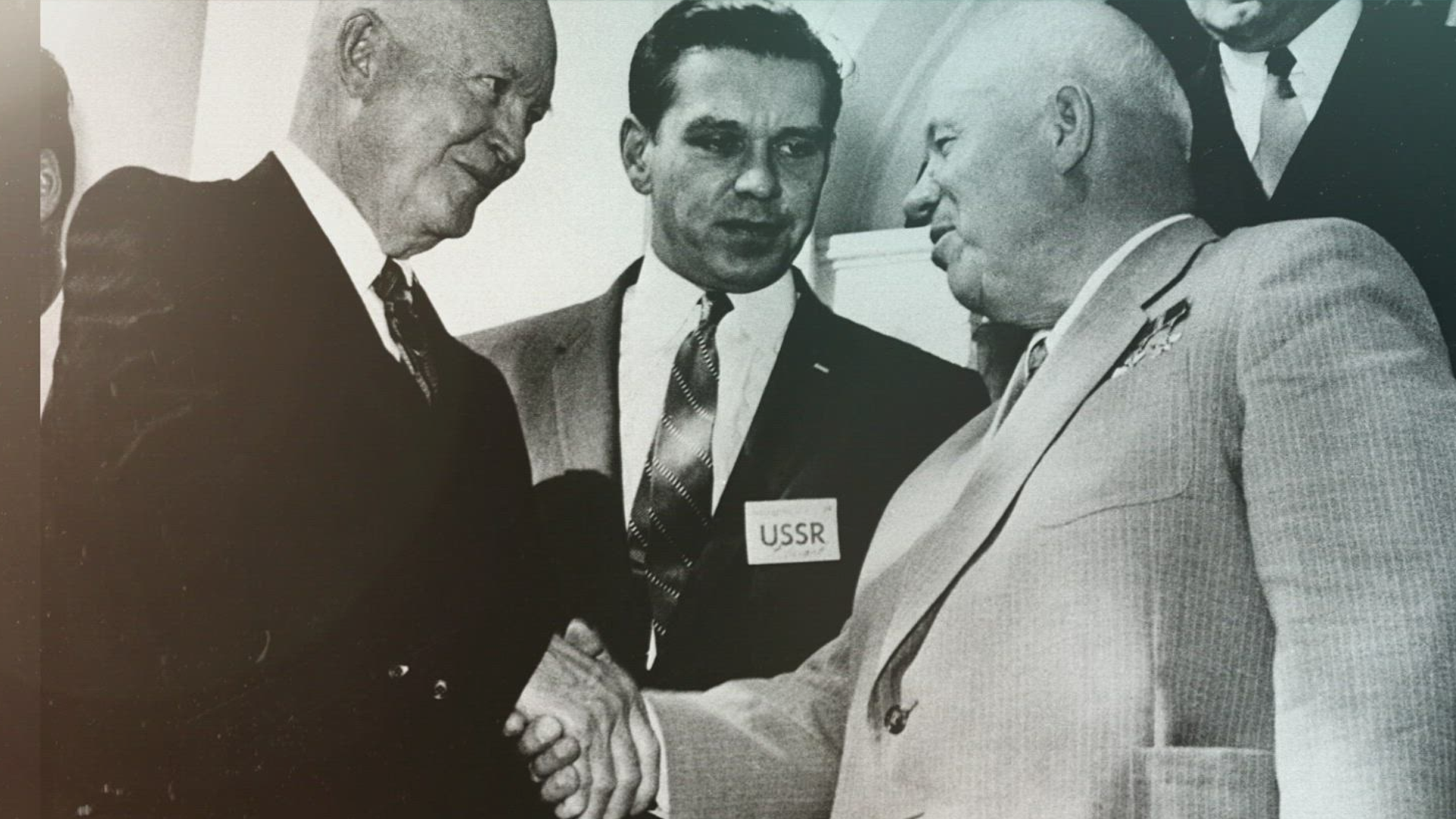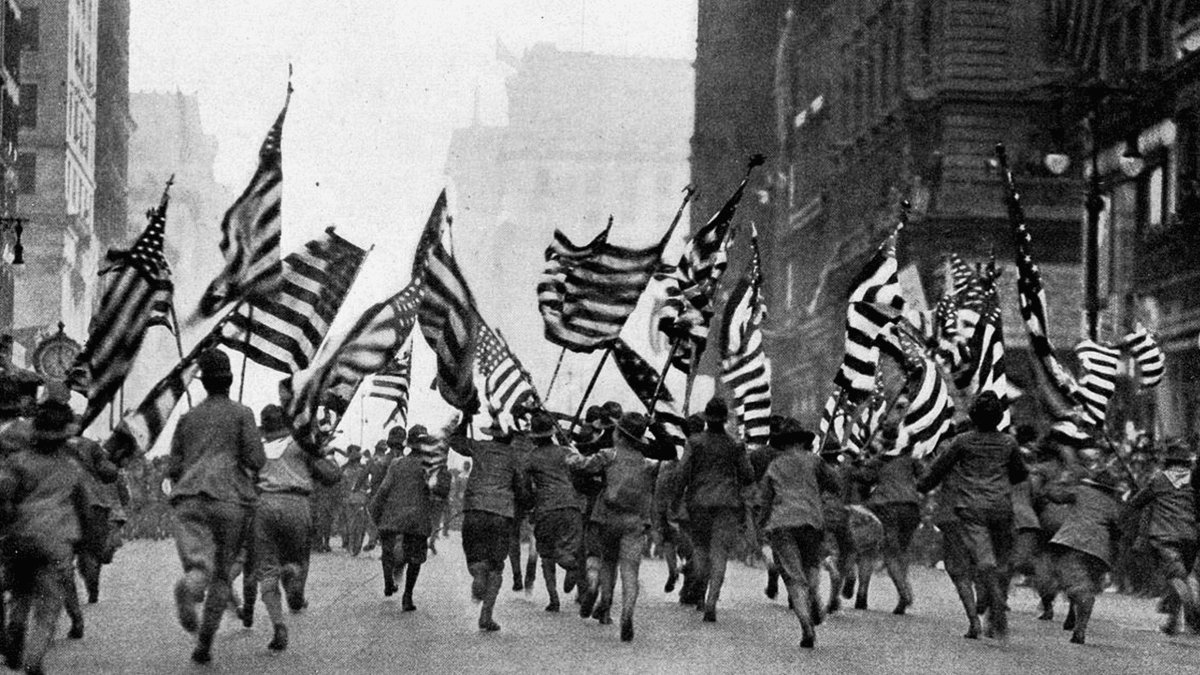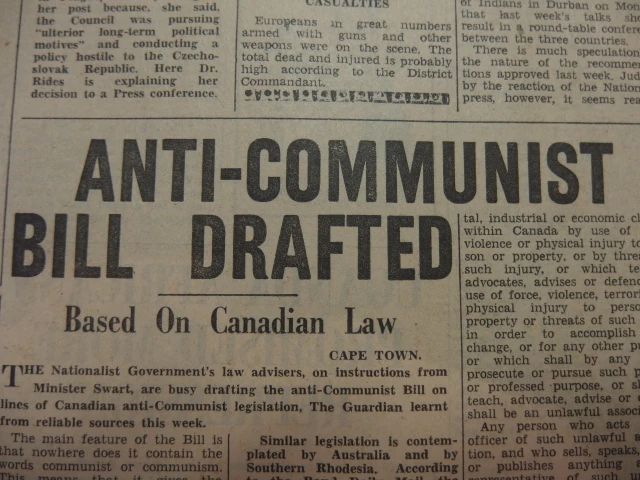Congress Passes the Communist Control Act

A Cold War-era anti-Communist poster warning against infiltration and subversion.
What Happened?
In the early 1950s, anticommunist hysteria defined American politics. Senator Joseph McCarthy had been disgraced by 1954 after his baseless accusations against the U.S. Army, but suspicion and fear of communism still ran deep. Riding this wave, Congress passed the Communist Control Act (CCA) on August 24, 1954, declaring the Communist Party 'an instrumentality of a conspiracy to overthrow the Government of the United States.'
The law stripped the party of its 'rights, privileges, and immunities' under U.S. law, making it impossible for the Communist Party to appear on ballots, hold property, or pursue legal claims in court. The measure was introduced by Senator Hubert Humphrey, partly as a way to deflect charges that Democrats were 'soft on communism.'
The CCA built on earlier Cold War legislation such as the Internal Security Act of 1950, which required communist organizations to register with the government. But where the 1950 act stopped short of banning the party itself, the CCA pushed further—at least in rhetoric—by branding communism as incompatible with democracy. In practice, however, its legal standing was shaky, and enforcement was inconsistent.
The law had immediate ripple effects: labor unions and civil rights groups such as the NAACP and the ACLU were investigated under suspicion of communist 'infiltration.' The Subversive Activities Control Board (SACB) could designate unions as communist-dominated, forcing them to reorganize or risk losing bargaining rights. This tactic weaponized fear against progressive organizing and fractured social movements.
Over time, the courts rolled back many of the CCA’s provisions, and by the 1960s the Communist Party still legally existed, albeit diminished under government harassment. In hindsight, the CCA is remembered less as a law that eliminated communism than as a cautionary tale of how civil liberties were sacrificed to Cold War paranoia.
Why It Matters
The Communist Control Act represents the dangers of legislating from fear. By attempting to outlaw an entire political party, Congress pushed the boundaries of constitutional rights and gave cover to investigations that targeted labor, civil rights, and dissenting voices. The act is a reminder that democracy is weakened not only by external threats, but also by internal efforts to silence opposition. Its legacy warns us that freedom of speech, association, and political thought must be protected even in times of fear—especially then.
?
What was the difference between the Internal Security Act of 1950 and the Communist Control Act of 1954?
Why was the Communist Party declared a threat to national security during the Cold War?
How did the CCA affect labor unions and civil rights organizations?
What constitutional rights did the Communist Control Act violate?
How does the Red Scare compare to other moments of political repression in U.S. history?
Dig Deeper
Karl Marx remains deeply important today not as the man who told us what to replace capitalism with, but as someone who brilliantly pointed out its contradictions and problems.
An introduction to Marx’s ideas, communism, and why debates about capitalism and democracy still invoke him today.
Related

McCarthyism: Fear, Power, and the Red Scare
In the 1950s, fear of communism gripped America. Senator Joseph McCarthy fueled this fear by accusing hundreds of people of being communist traitors—often without proof. The result was a national panic that tested the meaning of truth, justice, and freedom.

The War on Terror: A New Era of U.S. Power
After the September 11th attacks, the United States didn't just declare war on terrorism—it redefined national security, global alliances, and the limits of civil liberties.

Why the United States Entered World War I
In 1917, after years of neutrality, the United States entered World War I—reshaping global politics and transforming life at home.
Further Reading
Stay curious!
